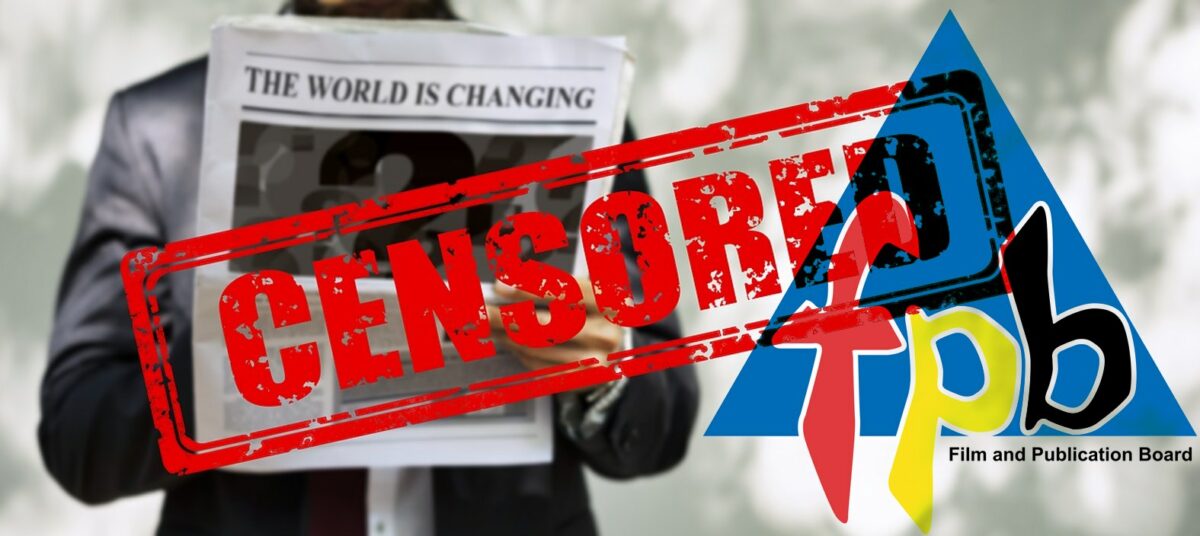The Film and Publications Amendment Act was approved by President Ramaphosa and went into effect from 1 March 2022. This came into effect somewhat as a surprise to the South African public, given the problems with the Government Printing Works (GPW).
In the list of aims of the act, appear some concerning descriptions, not least the aim: “to further provide for the obligations of internet access providers regarding curbing the use of their services in propagating prohibited content;”
In a briefing to the media on 3 March 2022, the Film and Publications Board (FPB) said that these changes come as a result of the changes to the way in which films, games and publications are distributed – namely online streaming. The act makes the FPB a fully-fledged regulator, as opposed to a classification authority, drastically changing the role of the FPB and granting it great power.
Of greatest concern is the potential damage to freedom of speech and the inevitable censorship issues which will arise.
Shadow Minister of Communications, Solly Malatsi MP, made the following statement
The DA rejects President Cyril Ramaphosa’s signing of the Films and Publications Amendment Act. Not only is this a dark day for our hard won freedom of speech, but due to problems with the Government Printing Works (GPW), South Africans did not know this Act had been proclaimed until the day it became law. The President’s surreptitious proclamation of the Act indicates that the ANC government hoped this horrific piece of legislation would go unnoticed.
The DA has asked the problems with the GPW be solved as a matter of urgency, and because our call was not adhered to, the Act has caught the country by surprise.
The DA is vehemently opposed to this Act, and it seemed that the ANC government conceded it has problematic aspects. In 2020, the then Minister of Communications and Digital Technologies, Stella Ndabeni-Abrahams, committed in a parliamentary portfolio committee meeting to ensuring that the final version of so-called ‘internet censorship’ regulations will not infringe on the constitutional right to freedom of expression. Another empty ANC promise.
Our right to freedom of expression must be relentlessly shielded from the State’s perpetual undemocratic quest to suffocate and criminalise its citizens’ expressions. Trying to police and censor citizens, especially online, shows a government completely blinded by their obsession and out of touch with the reality of the situation.
The fundamental risk posed by this unfortunate piece of legislation is that it tightens the State’s regulatory grip on what ordinary citizens can say and share online and introduces a needless bureaucratic process for commercial content producers to comply with, along with ruthless penalties should they fail to comply.
It’s a legal instrument of mass suffocation of all digital freelancers and independent generators of online content who will now be forced to submit to the authority of the Film and Publication Board (FPB) for compliance with the tedious provisions set out.
The DA believes that the existing laws regulating internet consumption and distribution of information are sufficient to deal with instances of hate speech, incitement of violence, or homophobic expressions. There is simply no need for the enactment of this legislation.
The DA will fight this vicious assault on our digital freedom with everything at our disposal. And if needs be, we will go to court to challenge it. Meanwhile, we need every South African who values freedom of speech to join us in defeating this.


Vlad the Invader has just past a law threatening a jail sentence of up to 15 years for anyone contradicting the party line over the Ukrainian invasion — telling the truth, in other words.
This action alone should have made the ANC-in-government pause when it came to the UN general assembly vote. It is not coincidence that it found itself in the same camp as some of the most odious dictatorships on the planet and voting differently from 141 of the more democratic nations (a comparison with, e.g. Freedom House’s rankings supports this).
Truth is, freedom of speech, a liberal western construct, is not part of the ANC’s instincts or DNA.